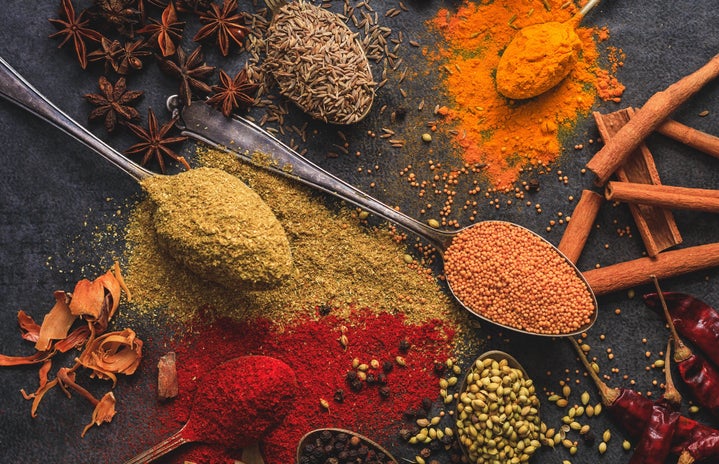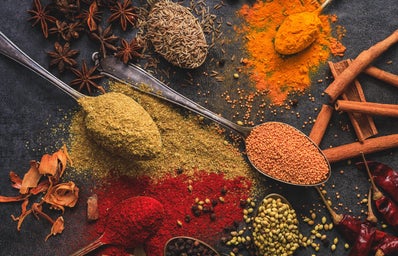It’s been a while since I truly binge-watched a show. I mean, got through the full series in two days, glued to the couch, passively watching the episodes glide by on autoplay. The Bear left me with no choice but to fall back into this habit; I simply could not turn it off. The series follows Carmy, a fine-dining chef, who returns home to Chicago to take over his family’s grimy sandwich shop after his brother’s death. In this position, Carmy works to transform the restaurant into a high-end spot.
I’ve been thinking a lot about why I was so captivated by this series. It’s fast-paced and chaotic and brutally overwhelming. It’s stressful and suspenseful. But there’s more to it than that. The series is also thoughtful and honest; it’s layered so gently with emotion, self-discovery and friendship. The Bear gracefully walks the line between harshness and softness. I can confidently say I’ve never seen anything like it.
For me, The Bear‘s beauty comes from the depth of its characters. That depth is what gives the series the ability to capture both tenseness and tenderness. For the most part, season one displays the characters externally, it shows their actions and the consequences. Taking place in the kitchen, a high-pressure environment, this manifests as a lot of yelling and swearing at one another, a lot of impulsive behaviour and plenty of messes to clean up—both in and out of the restaurant. Season two, however, takes us inside the characters. We begin to see more of their inner monologues, their contexts and conditions, their truths. We see that this group of diverse chefs, spanning plenty of ages and ethnicities, share a lot more than they may know: a craving for love, a desire for self-satisfaction, a nagging fear of failure.
In the first few episodes of The Bear, I did not feel connected to any of the characters. They felt distant and ill-tempered. I felt aggravated by their lack of control and stability: why couldn’t they just get their sh*t together? But within a few episodes, I felt I truly understood and rooted for every single character. It’s not that the characters changed so much as my picture of them became complete. I didn’t even realize I was looking at a half-done picture until I found the other half. I’m so used to seeing one-dimensional characters on screen that I subconsciously slotted them into different tropes. Within minutes, I had already characterized Richie as a villain and Sydney as a tight-a**. I felt I had nothing to learn about them until I realized I had everything to learn about them.
With all my thinking, I’ve concluded The Bear has shown me that many angry people are simply emotional people. For all their capacity to be loud, mean and aggressive, they have an equal capacity to be sad, gentle and loving. They feel lots. The Bear is one of the few series to give equal screen time to all that the characters are feeling; to display humans so wholly, without regard to the outdated tropes that dictate so much of our media.
While researching and writing this piece, I found myself on a reddit thread investigating why The Bear is causing people to cry so much. The user wrote that The Bear “seems like such a strange show to get all emotional about.” I find this claim radically confused. The show felt emotional to me from the get-go. My mom is trained as a chef and my grandfather owned restaurants all throughout his adulthood. Food is at the forefront of so much for us. So many emotions are held in a meal or a recipe. With this, I suppose it was easy for me to meld emotions and the act of cooking—the link felt rather natural.
After reading through the thread, however, I learnt I am not the only one who found the show deeply emotive. Many responses to the Reddit thread referenced the season two episode entitled “Fishes”. This episode is profound in so many ways. “Fishes” gives context to the family history of our protagonist, Carmy. We also meet Donna, the family matriarch and while she is mentioned in passing, it’s not until this episode that we meet her, in all her chaotic sadness. The episode follows a single Christmas dinner, a dinner of complete madness. Donna is recklessly orchestrating dinner from the kitchen, cooking far more than she can manage and occupying every inch with greasy pots and dripping marinades. Just like Donna herself, every dish is on the verge of boiling over. Tensions are high in the dining room as well, and when Donna finally comes to the table, civility is hanging by a thread—a thread that breaks, leaving the Berzatto family in shambles. The episode is about the messiness of family, the hardships of love, and the exhaustion of trying to please. It seems that these themes resonated intensely with viewers.
One Reddit user wrote, “I spent my entire therapy session today talking about ‘Fishes.’ I saw my childhood flash before my eyes in that episode. I may actually start to process some deep trauma because of it.” While another shared, “Fishes was BRUTAL. Bad flashbacks to every single holiday dinner at my mom’s house.” It seems there is an authenticity in this episode, and in the show in general, that touches users in a deeply perceptive way.
I was not watching The Bear as thoughtless entertainment. I was not even watching The Bear to see what happened next with the restaurant or the relationships or the back-of-house dynamics. I was watching The Bear to learn about people who felt so deeply real and complex, and using this to think about me and the people in my real life. It opened my eyes to how complex one person can be. The show left me thinking about managing grief and learning to find pockets of peace in the chaos. It reminded me that there is always room to make a change and reinvent yourself and that failing does not make you a failure. It showed me that you can never be too stressed to be kind. I could go on and on and on, but for now, I will be rewatching and further contemplating the series until we have season three.


